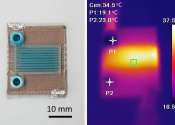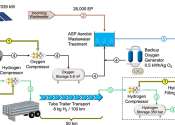US proposes replacing engine-housing parts on Boeing jets like one involved in passenger's death
Federal officials are proposing modifications and additional inspections on nearly 2,000 Boeing planes in the United States to prevent a repeat of the engine-housing breakup that killed a passenger on a Southwest Airlines ...
Dec 13, 2023
0
1









